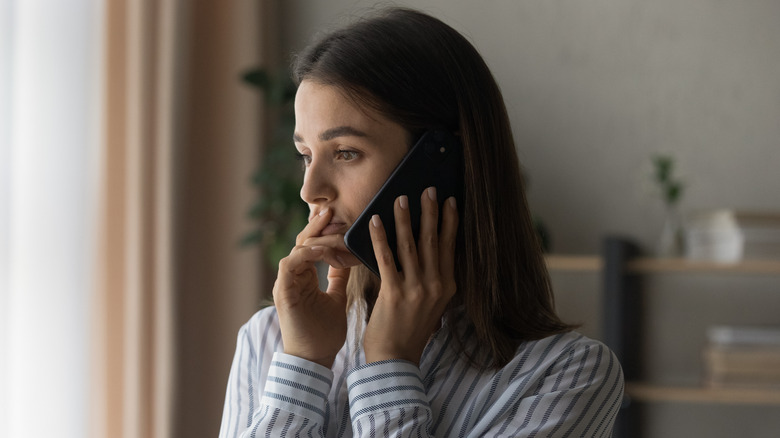The First Thing You Should Do If You Lose A Birth Control Pill
For those who have never taken a birth control pill, the idea of losing one might seem strange. However, those familiar with slipping the tiny pills out of their blister packs know how easy it is to lose one down the bathroom sink or on the floor. The question then becomes what to do about that lost pill.
It's not like skipping a pill is a valid option. As the Cleveland Clinic explains, the hormones in commonly used combination birth control pills wear off in about 36 hours, with the exact time depending on where in the pill's hormone cycle the missed pill falls. People on progesterone-only pills, typically prescribed for breastfeeding women or those who cannot take pills with estrogen, are at an increased risk for an unplanned pregnancy only 2-3 hours after the time they usually take their pill (via Self). Clearly, missing a pill is not ideal, so what should you do if you lose one?
Reach for the phone when you lose a pill
Go Ask Alice, an anonymous medical advice service provided by Columbia University in New York City, states that the first step you should take after losing a contraceptive pill is to call a medical provider. They will be familiar with the specific pill in question and can usually advise a safe course of action over the phone. If a doctor is not available, there are also nurse hotlines and chat services, such as those provided by Planned Parenthood, that can also offer specific advice.
Once the call has been placed, the UK's National Health Service suggests taking the last pill in the pack and starting the placebo week 1 day early, regardless of what type of birth control it is. This will shift the next pack's starting day back one week, however. If you want to avoid this, the NHS suggests taking a pill from a whole pack instead, preferably the one to replace the specific pill missing from the current pack's cycle. This pack can now become a "spare" pack in case any other pills become lost. Unfortunately, there is no perfect solution to a lost birth control pill. However, these alternatives maintain a person's level of protection, making them a better option than skipping the pill altogether.


